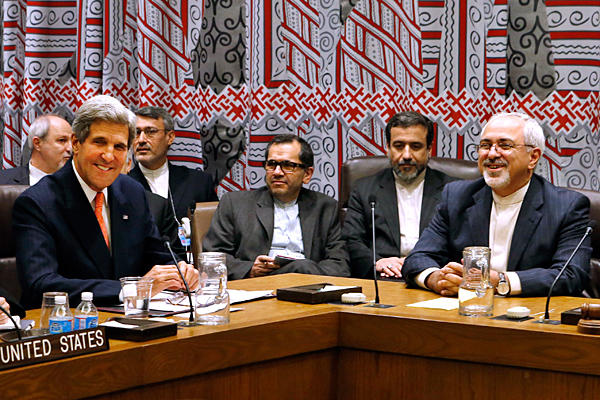Iran and six world powers P5+1 (United States, Russia, China, Britain, France and Germany) have signed a historic nuclear deal.
Key points are:
- The aim of the deal is to ensure that Iran does not develop nuclear weapons, in return for relief from crippling sanctions.
- This deal would assure Iran’s right to enrich nuclear fuel for civilian purposes under the third pillar of the Treaty on the Non-Proliferation of Nuclear Weapons.
- The agreement was concluded on the 18th day of marathon talks in Vienna between Iran and P5+1.
- The head of the UN atomic watchdog had signed a “roadmap” with Iran for probing suspected efforts to develop nuclear weapons, a key part of an overall accord.
- This deal would allow U.N. inspectors to press for visits to Iranian military sites as part of their monitoring duties
- Iran would have the right to challenge the U.N request.
What happens now?
- This agreement is expected to sharply curb Iran’s nuclear programme and impose strict UN inspections in order to make any drive to make nuclear weapons impossible and easily detectable.
- This deal would impose restrictions on Tehran’s nuclear programme for at least a decade and some longer.
- In return, UN and Western restrictions on Iranian oil exports and the economy of the country of 78 million people would be progressively lifted.
AffairsCloud Recommends Oliveboard Mock Test
AffairsCloud Ebook - Support Us to Grow
Govt Jobs by Category
Bank Jobs Notification





